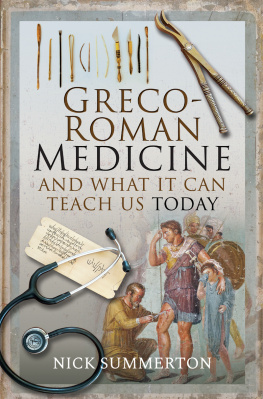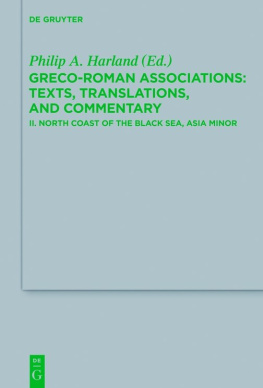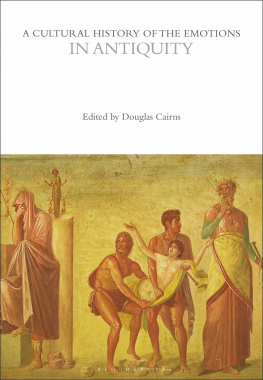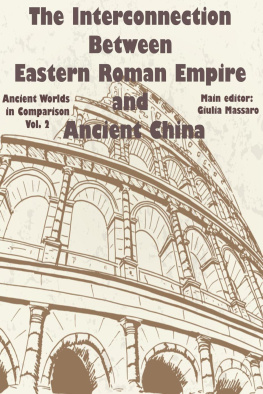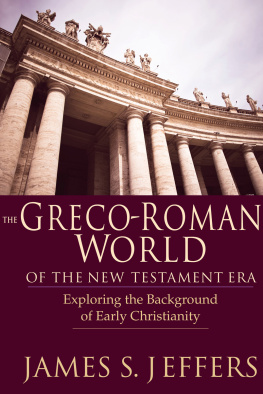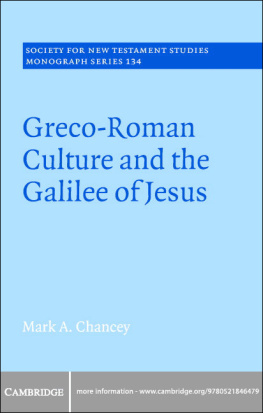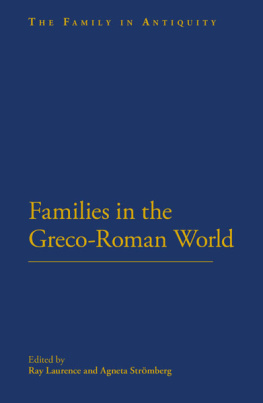Pagebreaks of the print version

Greco-Roman Medicine and What It Can Teach Us Today
Greco-Roman Medicine and What It Can Teach Us Today
Nick Summerton
First published in Great Britain in 2021
by Pen & Sword Archaeology
An imprint of
Pen & Sword Books Ltd
Yorkshire - Philadelphia
Copyright Nick Summerton, 2021
ISBN 978 1 52675 287 1
eISBN 978 1 52675 288 8
The right of Nick Summerton to be identified as the Author of this work has been asserted by him in accordance with the Copyright, Designs and
Patents Act 1988.
A CIP catalogue record for this book is available from the British Library.
All rights reserved. No part of this book may be reproduced or transmitted in any form or by any means, electronic or mechanical, including photocopying, recording or by any information storage and retrieval system, without permission from the Publisher in writing.
Pen & Sword Books Ltd. incorporates the Imprints of Pen & Sword Archaeology, Atlas, Aviation, Battleground, Discovery, Family History, History, Maritime, Military, Naval, Politics, Railways, Select, Transport, True Crime, Fiction, Frontline Books, Leo Cooper, Praetorian Press, Seaforth Publishing, Wharncliffe and White Owl.
For a complete list of Pen & Sword titles please contact
PEN & SWORD BOOKS LIMITED
47 Church Street, Barnsley, South Yorkshire, S70 2AS, England
E-mail:
Website: www.pen-and-sword.co.uk
or
PEN AND SWORD BOOKS
1950 Lawrence Rd, Havertown, PA 19083, USA
E-mail:
Website: www.penandswordbooks.com
List of Plates
Gymnasium scene mosaic, Villa Romana del Casale, Sicily Simon Dawkins
The boat-shaped prow, including staff and serpent relief, at the Aesculapian site on Tiber Island
Altar from Chester dedicated by the Greek physician Hermogenes Chester Museum
Altar from Chester dedicated by the Greek physician Antiochus Chester Museum
Wall-painting from Pompeii showed wounded Aeneas having an arrowhead removed Wikimedia Commons public domain
Tombstone of Ancinus Ingenuus, medicus ordinarius, from Housesteads
An inscribed bronze spatula from Caerleon belonging to Manilianus
A writing tablet from Vindolanda reporting the strength of the First Cohort of Tungrians The Vindolanda Trust
A pair of votive sheet-gold eyes unearthed at Wroxeter The Trustees of the British Museum, Lord Barnard and Raby Estate
An inscription of a medicus ocularis, found in Rome
A collyrium stamp from Kenchester The Trustees of the British Museum
A collyrium stamp from Wroxeter
Marble tombstone of an Athenian physician, Jason The Trustees of the British Museum
Votive forearm from Lydney ( Photograph: Dr G Hart ) Rupert Bathurst, Lord Bledisloe (Lydney Park Estate)
The modern fountain at the end of the Dorchester aqueduct
The Lincoln aqueduct pipeline ( Photograph: Michael Jones )
A view of the Dorchester aqueduct
Cross-section of the Dorchester aqueduct ( Drawing: Bill Putnam )
Remains of the latrine at Housesteads
The tepidarium at Chedworth villa
The hot spring water at Bath
The hospital at Housesteads
The drain leading from the latrine at Housesteads hospital
Roman lead piping at the Great Bath in Bath
Tin pyxide from Pozzino containing ancient medication ( Photograph: Emanuela Appetiti )
Philo collyrium in the centre of a Petri dish, with a circular bacteria kill zone around the collyrium
The dream room (abaton) at Epidaurus
Entrance to the Temple of Nodens at Lydney
A probable dream room (abaton) within the Temple of Nodens at Lydney
The bathhouse at Lydney
Bronze statuette of a dog, from Lydney (reproduction)
The theatre at Epidaurus
The prospect from the healing sanctuary at Corinth
The partially reconstructed propylaea at Epidaurus
Reconstructed basic medical kit: forceps, needles (bone and brass), scalpels, probes and skin hooks
The use of fibulae for skin closure JF Ratcliffe
Uvula forceps ( staphylagra ) from Caerwent ( Photograph: Newport Museum )
Brass surgical forceps from Littleborough ( Drawing: Sin Summerton )
Reproduction cataract needle
Reproduction cupping vessels
Reconstructed eye box with view of central compartment
Cup-shaped depression on underside of reconstructed eye box
Acknowledgements
In developing this book, I am indebted to many individuals stretching back over thirty years. However, I should like to express my particular thanks to Dr Ralph Jackson who has never lost patience with my many questions, providing me with a wealth of information and contacts in addition to facilitating my access to the collections at the British Museum. I am also very grateful to Heather Williams and Yuen Ting Baker at Pen & Sword Books for their support and encouragement in bringing this project to fruition.
Others have generously provided me with illustrations, resources and guidance. Many of these individuals are mentioned both in the preface and elsewhere within the text. However, I should especially like to thank Lord Bledisloe for permitting me access to the site at Lydney on several occasions, as well as to Martin Jones and Sally Pointer for all their superb work on the Roman reconstructions.
Above all, I must express my enormous gratitude to my parents, Barry and June, my wife, Ailie, and my three daughters, Katrina, Sin and Emily, for accompanying me on my numerous forays in search of the Greco-Roman world. Katrina also helped me to design the front cover alongside Jon Wilkinson.
Preface
Some elements of this book started life as a short work for Shire Publications entitled Medicine and Health Care in Roman Britain . In the conclusion I wrote that:
it would be wrong for us to dismiss the Roman approach to health care and to assume that we have got it entirely right today. Nowadays, many patients who consult their general practitioner are suffering from symptoms that are often due to the stresses and strains of modern life. Over-investigation of such somatic symptoms as fatigue, dizziness or headaches can cause considerable harm. Suggesting that such patients spend a quiet week resting, bathing and taking occasional brisk walks with the dogs in a place such as a Lydney [a Romano-British healing sanctuary] would, perhaps, be of greater benefit.
This final paragraph really marked the start of a long journey leading to the present book. In addition to seeking to better understand the Roman approach to health care, I wanted to consider what it can still teach us today. Also, although I have retained some of my earlier focus on Roman Britain, there has been a significant expansion to consider, in greater detail, the consequences of being part of the wider Roman Empire.
Over the last fourteen years I have had the privilege to meet or to correspond with several experts who have been enormously generous with their time and advice in specific areas. John Wilkins explained how he had adapted Galens ideas on hygiene for todays world. Adrian Harrison was instrumental in my initial forays into reconstructing some ancient eye remedies. Bryn Waters encouraged a greater focus on the locations and the activities at ancient healing sites in the UK and elsewhere. Melinda Letts kindly supplied me with access to her fantastic work on Rufus of Ephesus including a translation of Quaestiones medicinales. Onora ONeill helped me to look afresh at our current medical regulatory systems and to re-examine the writings of Scribonius Largus, and John Ratcliffes work on Celsus and ancient surgery provided significant new insights.

